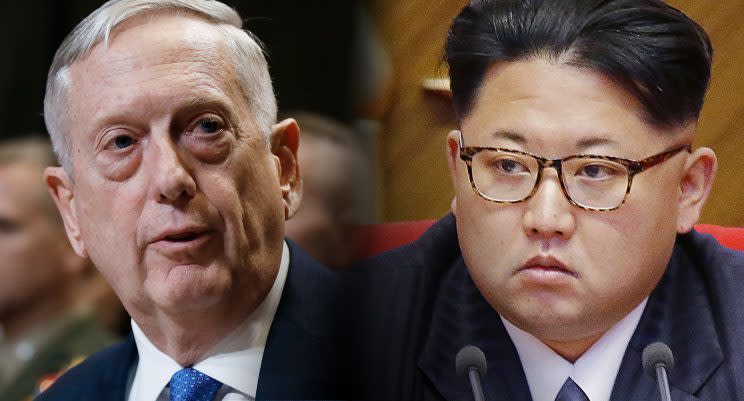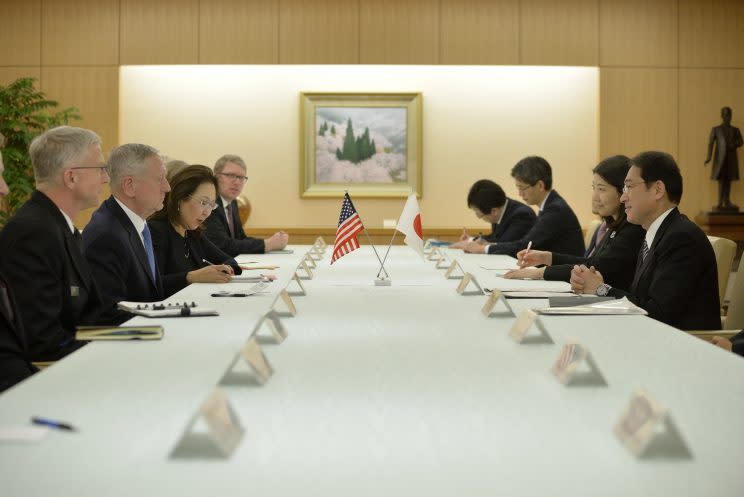Mattis suggests North Korea, not Iran or ISIS, is the biggest threat to U.S.

WASHINGTON — Defense Secretary James Mattis, when he led the U.S. Central Command that oversees operations in the Middle East, repeatedly said that the three gravest threats to the United States were “Iran, Iran, Iran.”
But at a press conference in London on Friday, the retired Marine general suggested that North Korea, with its ballistic missile and nuclear programs, now holds the top spot.
Asked about his previous focus on Iran as the most serious threat, Mattis called Iran “the primary state sponsor of terrorism” but pivoted quickly to the secretive Stalinist regime in Pyongyang.
“In the larger scheme of things, obviously, in a global situation that’s dynamic, you’ve highlighted appropriately I think the North Korean threat,” Mattis said (the reporter had not mentioned North Korea).
Mattis noted that the United States was working at the United Nations and with allies and partners “including with those that we might be able to enlist in this effort to get North Korea under control” — a clear reference to the country’s patron, China.
“But right now, it [North Korea] appears to be going in a very reckless manner,” Mattis said, “and that’s got to be stopped.”
The issue is sure to be near the top of the agenda when President Trump hosts Chinese President Xi Jinping at his private Mar-a-Lago resort next week. Trump has sharply criticized China for not doing enough to curb North Korea’s behavior.

Mattis made Asia his first foreign trip since becoming defense secretary, bringing the administration’s hard-line message on North Korea. Secretary of State Rex Tillerson traveled there recently as well, and delivered the same warnings. Vice President Mike Pence is due to head to the region soon.
North Korea is one of Trump’s most difficult national security challenges. On Barack Obama’s watch, Pyongyang made enough progress on nuclear weapons and ballistic missiles that, experts predict, it could strike the U.S. mainland, possibly even the East Coast, in two to three years.
The Obama administration enlisted China and other world powers in two rounds of international sanctions, and left Trump options for further tightening the economic vise, according to administration and congressional sources. China is the key to North Korea policy because it’s the smaller country’s source of food and fuel.
Punitive economic measures haven’t deterred North Korea, which announced in January that it could launch an intercontinental ballistic missile “at any time.” The U.S. responded that it would shoot down any missile, but the back-and-forth highlighted how international diplomacy and economic sanctions have not worked to date, leaving Trump very few options for facing down an escalating threat.
“North Korea’s growing capability is one of the most significant challenges the next administration will face. There are no simple solutions,” then-Vice President Joe Biden said in a January speech about nuclear policy. “We must continue working closely with the international community — including China — to convince North Korea to reverse course.”
After Pyongyang’s January missile threat, Trump tweeted: “North Korea just stated that it is in the final stages of developing a nuclear weapon capable of reaching parts of the U.S. It won’t happen!”
Read more from Yahoo News:


